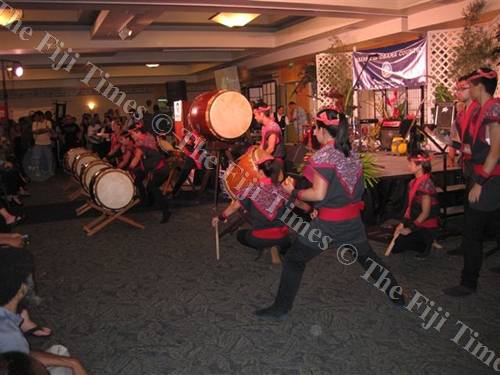
Ioane Burese
HONOLULU, Hawai'i (The Fiji Times / Pacific Media Watch): Now that the US presidential election is over and the people of the United States have returned President Barack Obama to his second and final four-year term in power, the post-election analysis has taken off in earnest.
At the core of this post-poll analysis is how the Fourth Estate has fared. The debate is raging on this issue.
Did the media influence the electoral process and, ultimately, the outcome? Or did it not? Was it independent? Fair? Did it create hype out of nothing or did it turn proceedings into a sports event? A circus, perhaps? Was there spin-doctoring? Was there overkill?
Dr Dan Boylan, a retired University of Hawai'i professor and a political commentator, citing the involvement of cable television networks, says these have become adjuncts of the political parties.
"FOX is an adjunct of the Republicans while MSNBC is an adjunct of the Democrat Party," he told Pacific Island journalists and election officials at the East West Center in Honolulu, Hawai'i yesterday.
"I get sick and tired of it. People get news from slanted ideological points of view. Politics have become tactical, strategic and scientific."
Dr Boylan said President Obama had taken the use of the media to another level via the social media.
'Young and handsome'
"He's young and handsome, so young people who don't care about race latched onto that. Obama's use of the media has been extraordinary," he added.
Fellow political commentator and retired University of Hawai'i professor Dr Neal Milner agrees the media went for the overkill.
"If you like to listen to all the talking heads, that's OK but you can make up your mind easily who you are going to vote for," he said.
"You have to watch who and what you listen to. The cable channel stuff was overwhelming, that's why a good newspaper would have given you a more responsible approach."
Dr Boylan said the media wanted to sell its shows "that's why it pumps all the hype".
In the case of Mitt Romney, he said the Republican candidate was elevated by cable television.
"He's not the kind of man that will excite you — not the kind of man who will win. The media creates the buzz that sells things and people believe it."
Meanwhile, the co-director of the East West Center's Pacific Islands Development Program, Dr Gerard Finin, agrees that while media, specifically newspapers, attempt to be neutral as a matter of professionalism, in the process they present editorials that could endorse one candidate or the other.
"And they benefit financially from advertising," he said.
"There's the perception that some media favour a liberal or conservative candidate, are in favour of one or the other and I think that's nothing new."
But Dr Finin stresses that for all its faults and imperfections, the media remains a crucial ingredient of democracy.
"The media is so essential to the democratic process for the distribution of information and making the system honest — it's absolutely essential," he says.
"Winners will say the media is good and losers will say the media is unfair — and, perhaps, that's human nature."
Ioane Burese's trip to Hawai'i was funded by the US Embassy in Fiji.
This work is licensed under a Creative Commons Attribution-NonCommercial 3.0 New Zealand Licence.




